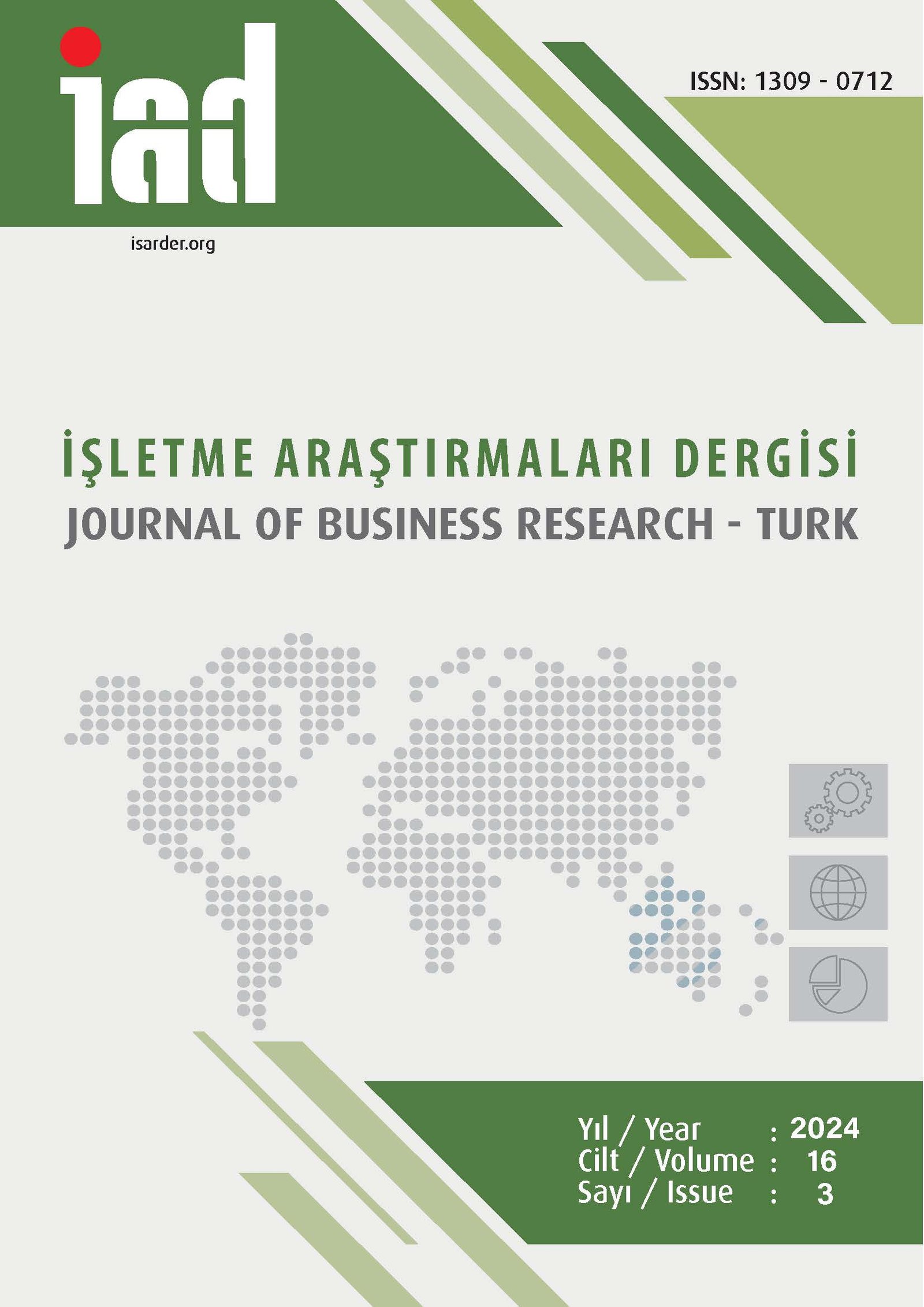Examining the Relationship Between Knowledge Management, Organizational Learning and Motivation Tools, Affective Commitment and Organizational Performance
DOI:
https://doi.org/10.20491/isarder.2024.1867Keywords:
Organizational Performance, Emotional CommitmentAbstract
Purpose – The aim of the study is to model and test the relationships between bank employees' knowledge management, organizational learning and motivation tools attitude factors on emotional commitment and organizational performance. Design/Methodology/Approach – The research hypotheses of this study were tested through structural equation modeling. In the study, convenience sampling method, one of the non-probability sampling methods, and survey, one of the data collection tools, were used. Research data was obtained from 570 participants selected among bank employees in the DOKA region by non-probability convenience sampling method. Findings – The research results show that shared vision, production and sharing of knowledge, providing vision inspiration, and intrinsic motivation factors have significant relationships between both emotional commitment and organizational performance at a 5% significance level. In addition, it was determined that commitment to organizational learning and extrinsic motivation factors were directly related only to emotional commitment at the 5% significance level. On the other hand, significant indirect effects of shared vision and intrinsic motivation factors on the organizational performance factor were determined through the emotional commitment factor. Discussion – The findings of this study and the findings of studies in the field generally coincide with the hypotheses in the theory. Considering the effects in the model, the latent variables of Motivation Tools (IM, DM and VIS), Shared Vision (PV), Commitment to Organizational Learning (OB) and Knowledge Production and Sharing (BUP) are significant; It was observed that the latent variables of Open Mindedness (AF), Acquisition of Information (BE) and Storage of Information (BD) had an insignificant effect.
Downloads
Published
How to Cite
Issue
Section
License

This work is licensed under a Creative Commons Attribution-NoDerivatives 4.0 International License.





